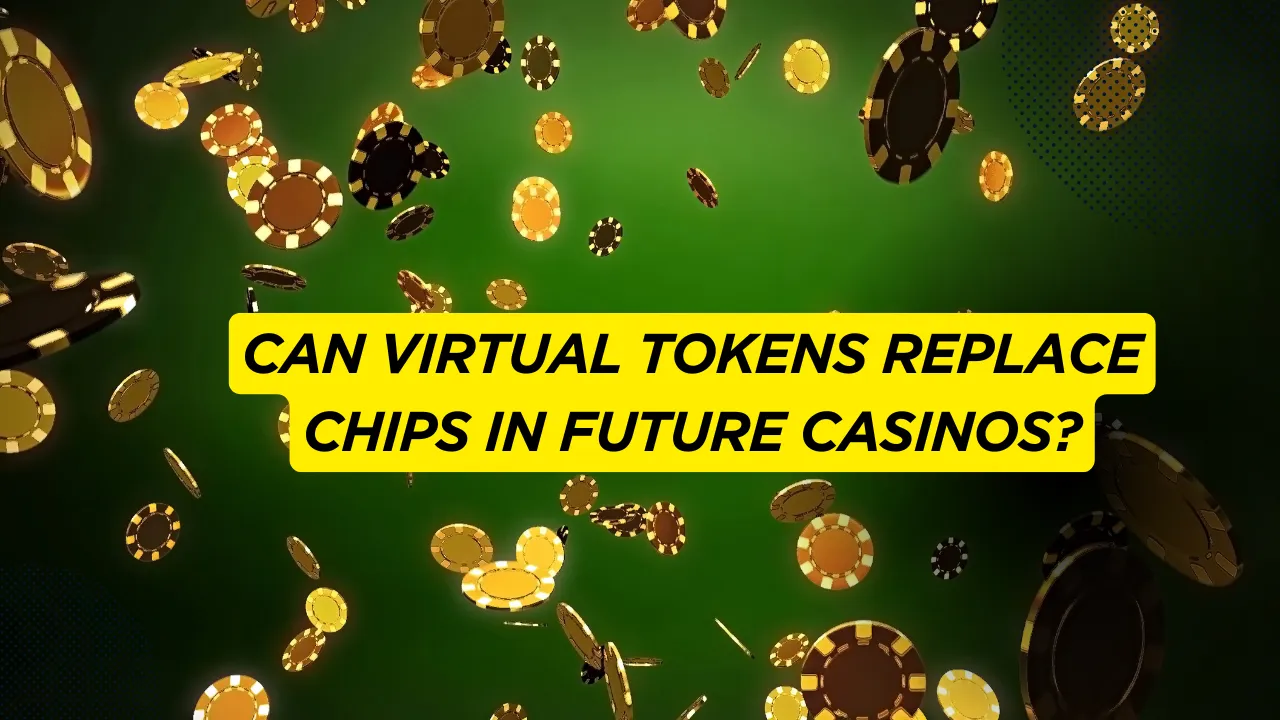For decades, the iconic sound of casino chips clinking together has been part of the gambling experience. From high rollers stacking colorful towers on blackjack tables to casual players sliding a single chip across the felt, chips have always been more than just currency—they’re symbols of excitement, risk, and reward. But as technology continues to reshape gambling, an interesting question emerges: could virtual tokens one day replace physical chips in both online and land-based casinos?
The rise of digital payments, blockchain, and contactless transactions has already changed how we handle money in daily life. It seems inevitable that casinos, always at the forefront of innovation, will explore alternatives to traditional chips. Still, replacing something so embedded in the culture of gambling won’t be simple.
Why Chips Became the Standard in Casinos
Chips weren’t always the standard in casinos. In the early days of gambling, players used coins, paper currency, or even items of value to place their bets. But casinos quickly realized that standardized tokens made the process smoother and safer.
Chips are uniform, easy to handle, and harder to counterfeit than regular currency. They also add a psychological dimension—players feel more comfortable betting with chips than with actual money because chips feel less tangible. This “value disconnect” encourages more spending, which benefits casinos.
Over time, chips became iconic, not just for their practicality but for the atmosphere they create. The tactile nature of holding, stacking, and hearing chips adds to the sensory immersion of gambling. Replacing them with digital alternatives means disrupting more than just the payment system—it means altering a piece of casino culture.
The Rise of Virtual Tokens in Gambling
Today, the gambling industry is shifting toward digital payments, especially in online environments. Virtual tokens, whether tied to fiat currency or blockchain technology, are already common in online casinos. Players deposit funds, receive digital credits, and wager with them seamlessly across different games.
But what about physical casinos? Could digital tokens on a smart card or mobile wallet replace the chips we know today? Some casinos are already experimenting with cashless payment systems where players load money onto a card or app, eliminating the need to carry chips or cash at all.
This mirrors broader changes in the gambling landscape, including innovations from the newest bookmakers, who increasingly rely on digital wallets, tokens, and contactless methods to streamline betting experiences. As betting and casinos overlap more closely, the shift toward digitalization looks less like a question of “if” and more like “when.”
Benefits of Virtual Tokens Over Chips
Virtual tokens have several advantages over traditional chips. They allow instant transactions without the need for chip exchanges, reduce the risk of counterfeit tokens, and simplify record-keeping for both casinos and players. Digital systems can also integrate responsible gambling tools, such as deposit limits or spending trackers, more easily than chips.
For casinos, virtual tokens could lower operating costs by reducing the need for manufacturing, securing, and managing physical chips. For players, the convenience of linking tokens directly to digital wallets or loyalty programs could enhance the overall experience.
Another benefit lies in transparency. Blockchain-based tokens, for example, could provide provable fairness and trackable histories, offering players greater trust in the system. This could be especially appealing to a younger demographic already comfortable with cryptocurrencies and mobile payments.
The Challenges of Going Cashless
Despite the potential advantages, transitioning away from chips presents significant hurdles. First is the cultural and emotional attachment. Chips are deeply tied to the casino experience, and many players would resist losing them. Walking into a casino and seeing only phones or cards on tables might feel sterile compared to the lively sound of chips in play.
There are also technical and regulatory challenges. Digital systems must be secure against hacking and fraud, and regulators will need to adapt rules to govern digital casino currencies. Additionally, not all players are comfortable with cashless systems. Older demographics in particular may prefer the familiarity of physical chips and cash.
Finally, chips serve as a powerful psychological tool for casinos. They encourage risk-taking by making money feel abstract. If digital tokens are linked too transparently to real currency values, some of that psychological advantage could be lost.
Hybrid Models: The Likely Future
Rather than a complete replacement, the most likely scenario is a hybrid model. Casinos may continue offering chips while also introducing optional digital token systems. This would cater to different player preferences and allow casinos to gradually adapt.
For instance, high-limit rooms could adopt digital tokens for efficiency, while main floors continue to buzz with the sounds of chips. Online casinos will likely push further into blockchain and virtual tokens, while land-based venues balance tradition with innovation.
In the long run, casinos that adopt flexible models will be better positioned to attract both tech-savvy younger audiences and traditional players who value the old-school experience.
Final Thoughts
Virtual tokens may well represent the future of casino currency, but chips aren’t going away overnight. They’re too ingrained in the culture and atmosphere of gambling. Instead, the industry is likely moving toward a blended future, where both systems coexist depending on player preference and casino strategy.
What seems clear is that the gambling industry thrives on innovation, and virtual tokens are a natural progression of that trend. Whether through blockchain-based systems, mobile wallets, or app-based tokens, the shift toward digital currency will continue to grow.
As a player, embracing these changes will likely mean greater convenience, more transparent systems, and potentially enhanced trust in the fairness of casino operations. But for those who love the feel of chips in their hands, rest assured: that timeless clink won’t disappear anytime soon.




